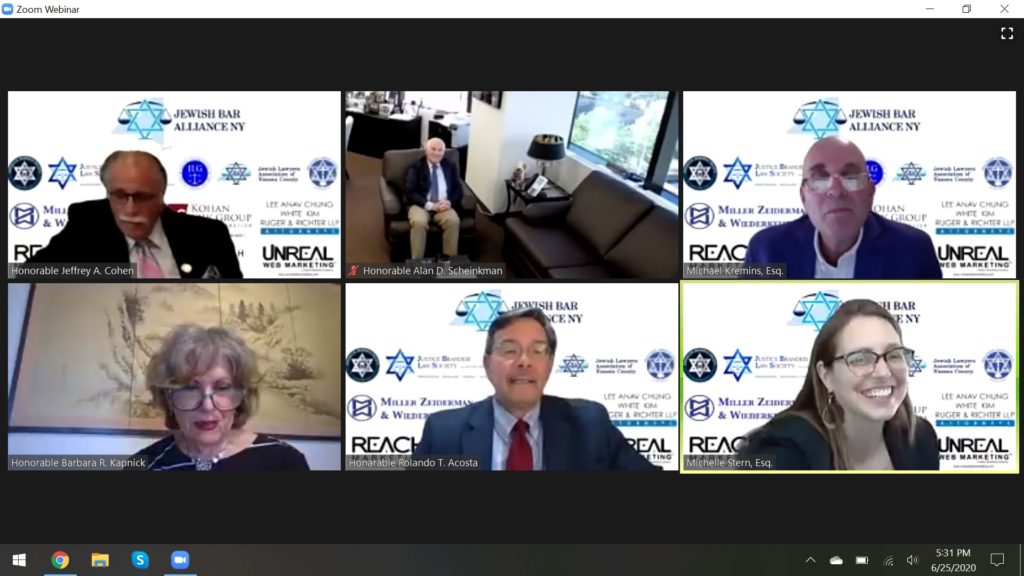Justice Scheinkman gives update on Appellate Division amid COVID-19

When Hon. Alan Scheinkman took over as presiding justice of the Appellate Division, Second Judicial Department, there were about 3,000 civil cases in the court’s backlog. By early 2020, that number had been cut by more than 25 percent to roughly 2,200. Then, the COVID-19 pandemic hit.
Justice Scheinkman sat down last Thursday with the Jewish Bar Alliance of New York; Justice Rolando Acosta, presiding justice of the Appellate Division, First Department; and Hon. Barbara Kapnick and Hon. Jeffrey Cohen to discuss how the pandemic slowed the court, what it is doing to adjust to the new normal, and what the future of the Appellate Division holds.
“Just in time for the pandemic, we had gotten our civil caseload, our backlog reduced by about 800 cases,” Scheinkman said. “It was a combination of hearing more cases and having a successful mediation program. It was a significant backlog reduction and in addition we had eliminated any backlog in Family and Criminal Court Appeals.”

Brooklyn Boro
View MoreNew York City’s most populous borough, Brooklyn, is home to nearly 2.6 million residents. If Brooklyn were an independent city it would be the fourth largest city in the United States. While Brooklyn has become the epitome of ‘cool and hip’ in recent years, for those that were born here, raised families here and improved communities over the years, Brooklyn has never been ‘uncool’.